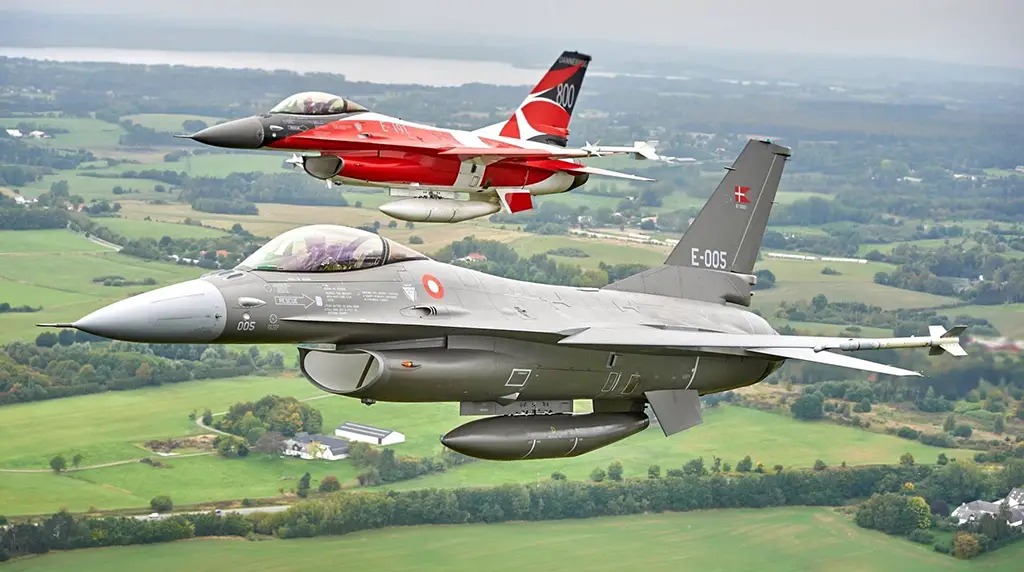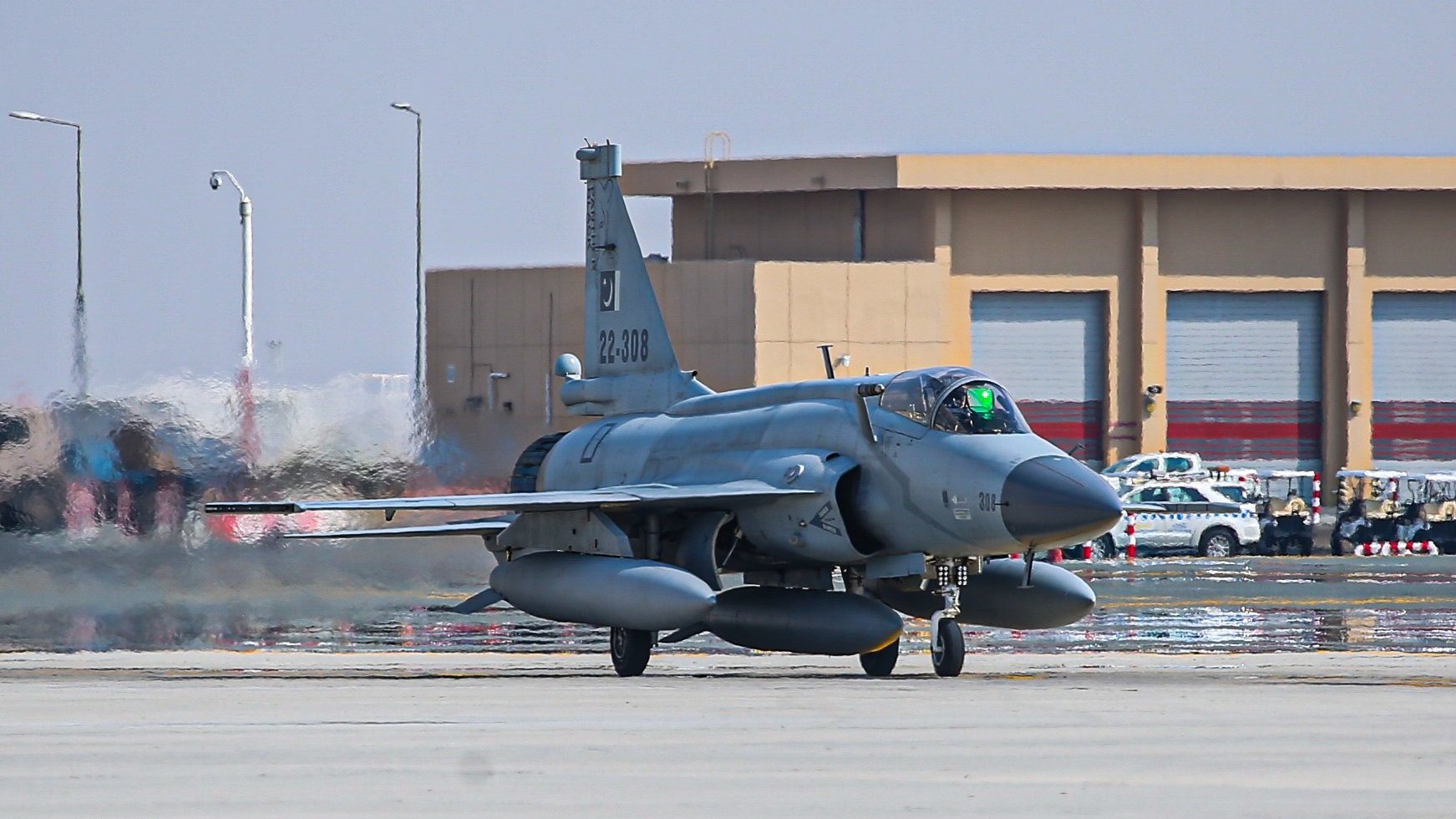Argentina is likely to finally buy US-origin F-16 fighters from Denmark, officially shelving the Chinese JF-17 Thunder Block-III jets.
US ‘Tests’ THAAD To Defend Guam From Chinese Attacks; Checks AD System’s Readiness In War Conditions
The deal marks the impact of the intense Great Power rivalry between the US and China in South America, where Washington is averse to having Beijing’s military equipment in its backyard.
Likewise, Beijing too has been trying to leverage its advancements in defense aerospace technology by securing military sales to developing and Global South countries and presenting itself as an alternative to costly Western weapons.
The announcement to this effect was made by Platform X user Milei Shelby, which the President himself ‘liked.’ While Argentina’s defense ministry officials did not provide additional details and said that more information would be released by the end of April, according to La Nacion, they did not deny it either.
🚨🇦🇷 | AHORA
👉🏽 Argentina comprará los aviones de combate F-16 estadounidenses al gobierno de Dinamarca.
Es el mayor avance en Defensa de los últimos 20 AÑOS. pic.twitter.com/pGKjGLC78h
— Milei SheIby (@TommyShelby_30) March 20, 2024
Argentine President Makes It Official
“In “October 2023,” the US had “authorized the sale of 24 F-16 fighter planes equipped with air-to-air missiles from Denmark to the country and was working on a financing package for 40 million dollars to facilitate the purchase by the Argentine government.”
It was an operation of “enormous geopolitical impact” in which Washington “competes directly with China,” which had offered the sale of JF-17 aircraft “from Pakistan.”
Argentina’s new President, Javier Milei, had indicated he would buy the American fighter in November 2023. After getting elected, headlines emerged suggesting the potential strain in relations between Buenos Aires and Beijing under his leadership.

Furthermore, Javier Milei’s chief foreign affairs adviser, Diana Mondino, announced a shift in Argentina’s stance toward the association of leading emerging markets, consisting of Brazil, Russia, India, China, and South Africa.
According to Mondino, Buenos Aires would refrain from joining the bloc, citing a lack of perceived benefits, and be willing to reconsider if advantages emerge.
During the election campaign against incumbent finance minister Sergio Massa, the right-wing libertarian Milei declared his unwillingness to engage in business with communist countries. He advocated for terminating relations with China in favor of aligning with what he referred to as “the civilized side of the world.”
Milei also accused China of financing pro-Massa advertisements on YouTube during the campaign. This marks a departure from the outgoing government’s approach, which actively nurtured the relationship with China.
Argentina’s economic ties with China are significant, with China ranking as Argentina’s second-largest trading partner and its primary export market for agricultural products.
Since 2008, Argentina has entered into financing agreements with China totaling US$8.1 billion through nine loan contracts, with a substantial portion directed through the China Development Bank and the Export-Import Bank of China for various projects.
Despite Milei’s critical stance, Chinese authorities view bilateral relations positively and have cautioned the president-elect against severing diplomatic ties, noting the potential for steady progress and economic cooperation. Yet, Milei and his associates have also declared Argentina’s intention to cease state-to-state trade agreements and secret talks with China.
The UK Element
Interestingly, the United Kingdom (UK) had long opposed Argentina’s efforts to modernize its air force, employing diplomatic pressure to discourage other nations from selling aircraft. This is the dispute over the Malvinas Islands (Falkland Islands as they are called by England).
The EurAsian Times had reported in January how Milei re-ignited the debate over the ownership of the islands, over which the two countries fought a 74-day war in 1982. London is apprehensive that Buenos Aires will have greater military leverage in the dispute with the acquisition of modern jets.
On previous occasions, Britain has applied pressure against Argentina’s efforts to procure the Swedish Saab Gripen and the South Korean FA-50 trainer/light fighter. When indications arose suggesting Argentina’s potential interest in purchasing Chinese jets, the US, apprehensive about this increasing collaboration, intervened by presenting its F-16 fighter jets as a substitute for the JF-17.
In parallel, India also proposed its Tejas aircraft to Buenos Aires.
However, from a techno-industrial, commercial, and tactical standpoint, the JF-17 better serves Argentine needs since it is free of Western embargoes and sanctions and offers localized manufacturing or assembly. It is likely that the US will put forward conditions on the jet’s use that might bar it from being used against an ally like the UK.

The JF-17 Block-III variant offered to Argentina has advanced avionics, electronics, flight control systems, and active electronically scanned array (AESA) radar and can fire Chinese air-to-air missiles like the PL-10, PL-12 and the PL-15.
The F-16, however, leads in certain aspects. It is the leading model in the heavy-weight single-engine class and a multirole fighter that has seen more operational hours and established tactics than the JF-17. It is primarily known for its high performance, maneuverability, and advanced radio communications suite.
- The author can be reached at satamp@gmail.com
- Follow EurAsian Times on Google News




